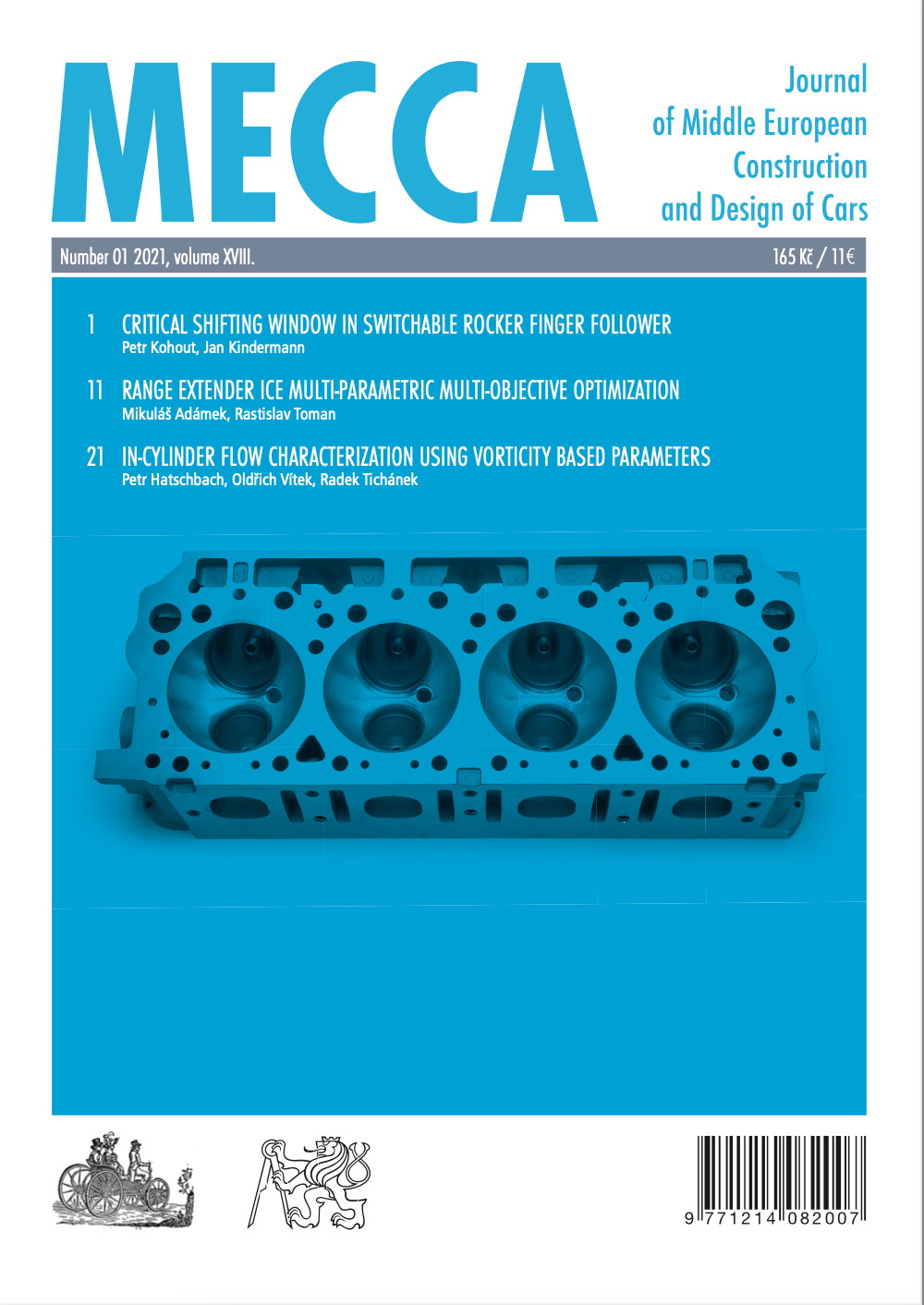RANGE EXTENDER ICE MULTI-PARAMETRIC MULTI-OBJECTIVE OPTIMIZATION
DOI:
https://doi.org/10.14311/mecdc.2021.01.02Abstract
Range Extended Electric Vehicles (REEV) are still one of the suitable concepts for modern sustainable low emission vehicles. REEV is equipped with a small and lightweight unit, comprised usually of an internal combustion engine with an electric generator, and has thus the technical potential to overcome the main limitations of a pure electric vehicle – range anxiety, overall driving range, heating, and air-conditioning demands – using smaller battery: saving money, and raw materials. Even though several REx ICE concepts were designed in past, most of the available studies lack more complex design and optimization approach, not exploiting the advantageous single point operation of these engines. Resulting engine designs are usually rather conservative, not optimized for the best efficiency. This paper presents a multi-parametric and multi-objective optimization approach, that is applied on a REx ICE. Our optimization toolchain combines a parametric GT-Suite ICE simulation model, modeFRONTIER optimization software with various optimization strategies, and a parametric CAD model, that first provides some simulation model inputs, and second also serves for the final designs’ feasibility check.
The chosen ICE concept is a 90 degrees V-twin engine, four-stroke, spark-ignition, naturally aspirated, port injected, OHV engine. The optimization goal is to find the thermodynamic optima for three different design scenarios of our concept – three different engine displacements – addressing the compactness requirement of a REx ICE. The optimization results show great fuel efficiency potential by applying our optimization methodology, following the general trends in increasing ICE efficiency, and power for a naturally aspirated concept.
Downloads
Published
Issue
Section
License
Copyright (c) 2021 Mikuláš Adámek, Rastislav Toman

This work is licensed under a Creative Commons Attribution 4.0 International License.
Authors who publish with this journal agree to the following terms:1. Authors retain copyright and grant the journal right of first publication with the work simultaneously licensed under a Creative Commons Attribution License that allows others to share the work with an acknowledgement of the work's authorship and initial publication in this journal.
2. Authors are able to enter into separate, additional contractual arrangements for the non-exclusive distribution of the journal's published version of the work (e.g., post it to an institutional repository or publish it in a book), with an acknowledgement of its initial publication in this journal.
3. Authors are permitted and encouraged to post their work online (e.g., in institutional repositories or on their website) prior to and during the submission process, as it can lead to productive exchanges, as well as earlier and greater citation of published work (See The Effect of Open Access).

